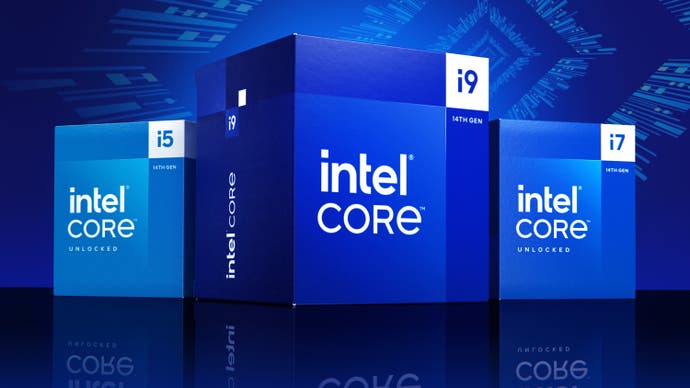Intel Core i9 14900K and Core i5 14600K review: the definition of iterative
Better than their predecessors, but only just.
With all done and said, it's clear that these new 14th-gen CPUs are testing the limits of what can be called a new generation. We saw noticeable performance bumps only in synthetic benchmarks, with gaming workloads showing margin-of-error to seven percent uplifts for the 14900K and 14600K over their predecessors. These higher clock speeds look good on paper, but based on our testing at least they don't seem to translate into meaningful in-game improvements. It'll be interesting for us to see if other outlets are able to spot more substantial improvements in different workloads.
Thermals were also not great, with the 14900K pumping out enough heat to hit 96 degrees in all-core transcoding workloads - and that's with a 360mm AiO attached in a cool room. Thermals during gaming were far less worrying, but attaching a giant cooler is going to be of the essence to anyone that wants to maximise their 14900K's all-core performance.
All of that means that AMD's Ryzen X3D processors remain our preferred CPUs for gaming at the high-end, while 13th-gen CPUs with slight discounts are likely to offer better value compared to full-price 14th-gen alternatives.

There are some areas that might partway redeem the 14th-gen CPUs that we didn't investigate closely: AI-powered XTU overclocking, which has the potential to offer more aggressive overclocks than past lookup-table-based efforts, and the APO (Application Optimisation) system, which promises better performance by improving thread scheduling. It would be interesting to see if the latter fixes our Metro Exodus Enhanced Edition results on the 14900K, for example, as a 16 percent improvement in that game is promised by Intel slides but didn't materialise in our testing.
As always, we encourage you to read a plurality of reviews to get a broader idea of performance, especially with a release like this one that seems to operate on very slim margins. Performance profiles can vary from scene to scene, let alone game to game, so reading widely is often the best way to make a final value judgement. I'm particularly interested to see if any 14700K units were sampled, as this could be the lone model worth the money over its last-gen counterpart.
With what seems to be a very minor update in the books for Intel, the focus now shifts to the upcoming Arrow Lake CPUs, likely to arrive in 2024, and AMD's Ryzen 8000 processors in the same year - which could provide plenty of excitement after one of the most subdued Intel CPU generations in memory.
Intel Core i9 14900K and Core i5 14600K analysis
- Introduction, test rig and content creation benchmarks
- Gaming benchmarks: Flight Simulator 2020, Hitman 3, Ashes of the Singularity
- Gaming benchmarks: Counter-Strike: GO, Metro Exodus EE, Black Ops Cold War
- Gaming benchmarks: Cyberpunk 2077, Far Cry 6, Crysis 3 Remastered
- Intel Core i9 14900K and Core i5 14600K: the Digital Foundry verdict [this page]
